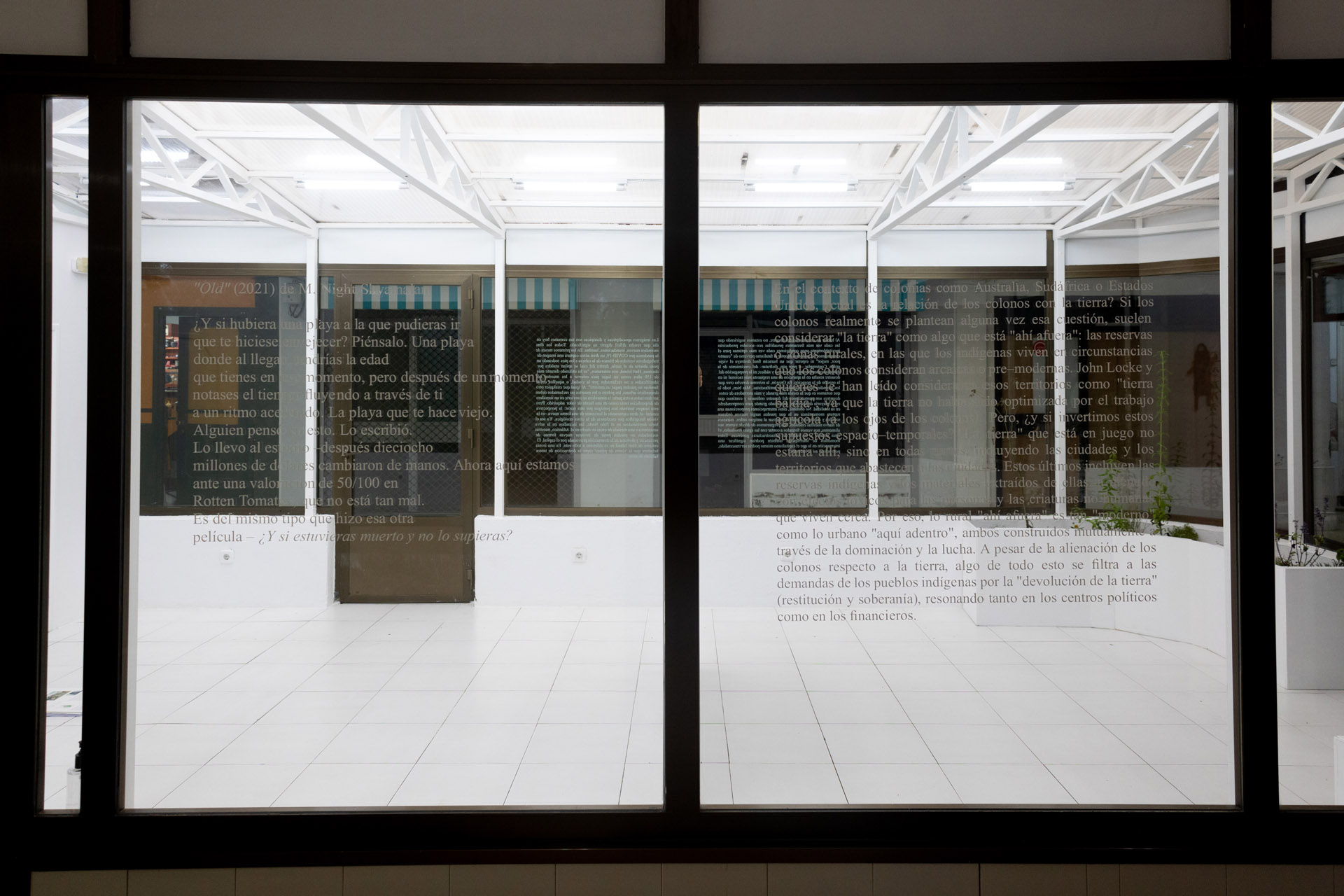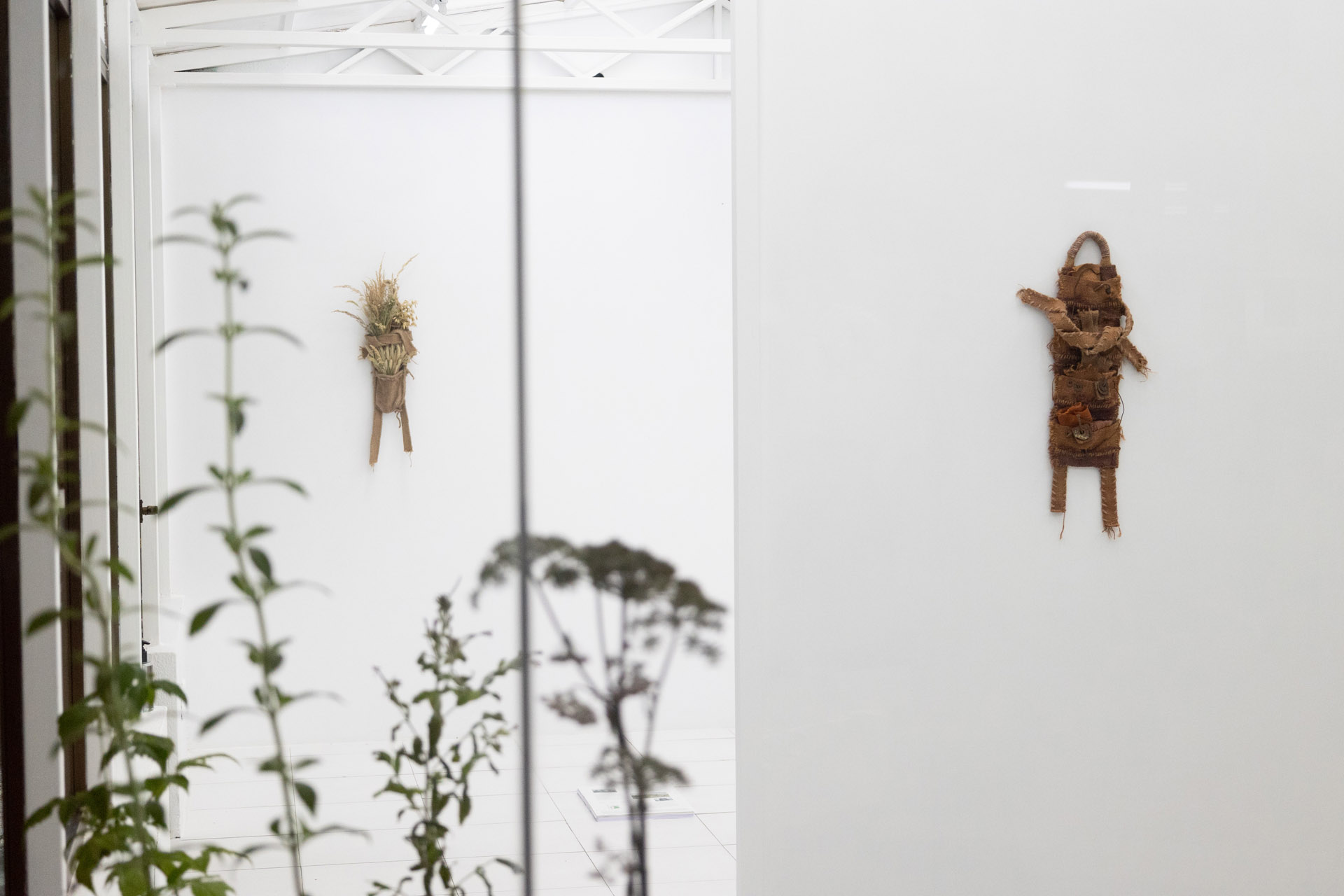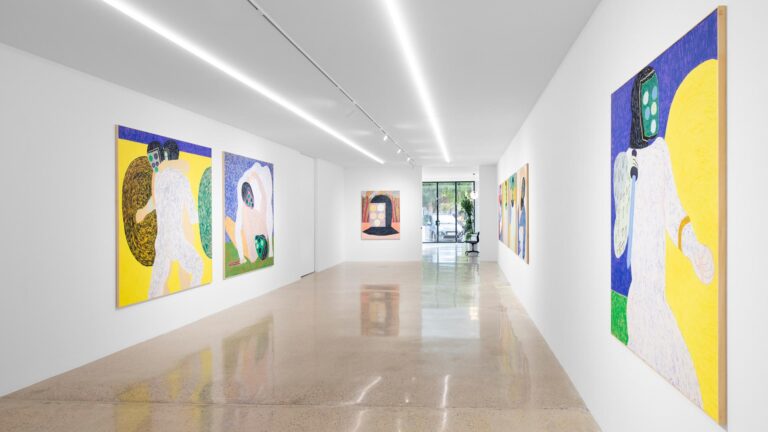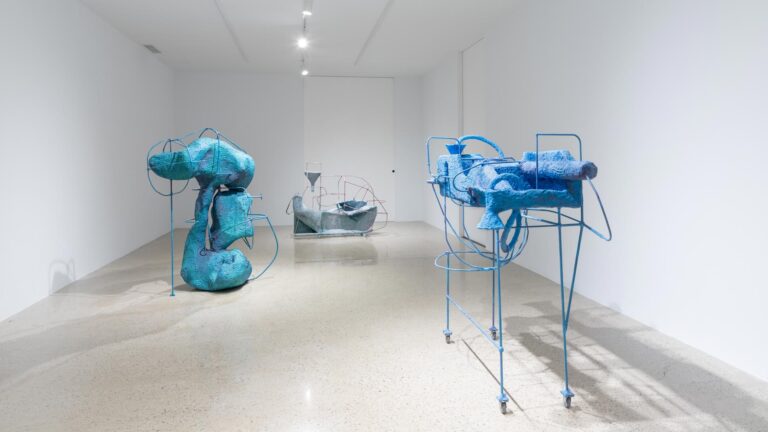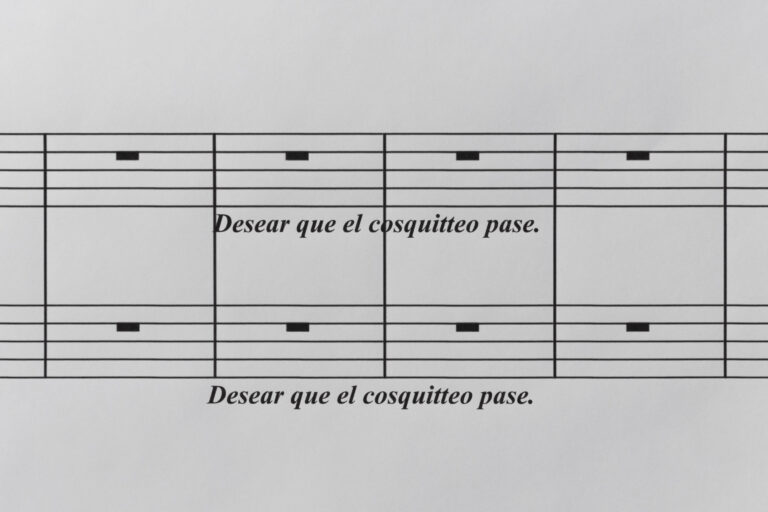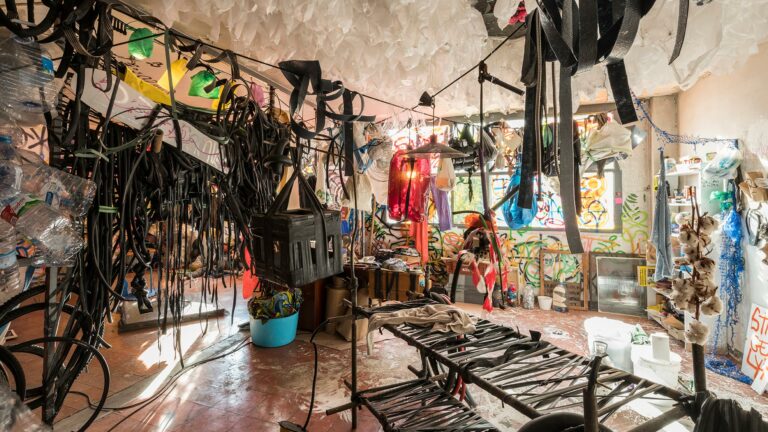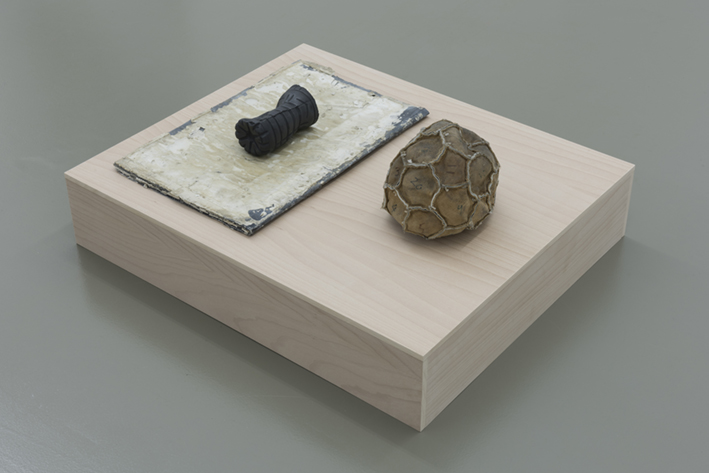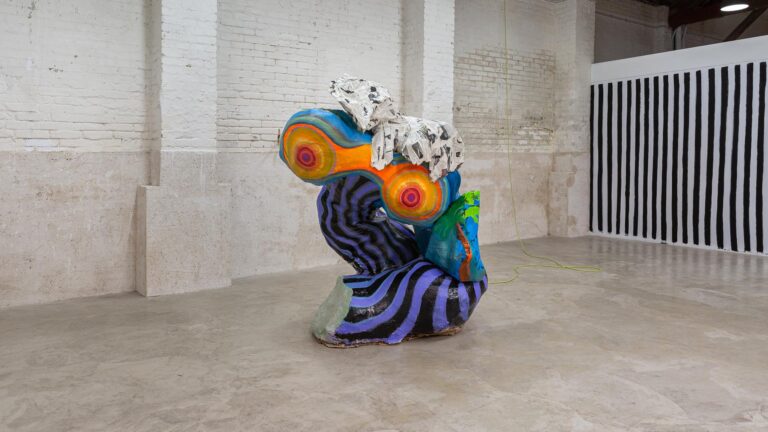Artists: Birke Gorm, Derek Jarman, Inland, Javier Arce, La Bardal, Out of the Woods
Exhibition title: A rural death
Venue: fluent, Santander, Spain
Date: September 10 – October 22, 2021
Photography: all images copyright and courtesy of the artists and fluent, Santander
A rural death is an exhibition and discursive program bringing together artists, theorists and writers who examine non-urban-centric forms of death.
The imposition of one way of thinking and making death visible during the current health crisis, erases the presence of those bodies and practices that escape the channels of urban interconnection and contact. The idea of the countryside becomes reduced to an escapist image, rooted in the romantic imagination and in the contemporary dispossession of indigenous and peasant cultures. Through bio-political regimes in which the very definition of life is controlled through the bodies, images and legal structures that choreograph our movements, A rural death delves into contemporary forms of power and distributed mortality as a metaphor of our time.
Exploring death as a social form, the exhibition proposes alternative thresholds that take into account the elderly in rural contexts, life-death cosmologies as non-binary entities, agricultural extractivism as contagion, as well as the loss of biodiversity and collective mournings for the current multiple processes of massive extinctions. Through a series of formal languages that address these material conditions, A rural death questions the laws, liturgies, ontologies, beliefs and codes that expand our imaginary of individual and collective perenniality.
A site-specific replica of Derek Jarman’s garden welcomes the visitor. In words of Jarman’s friend Howard Sooley, ‘‘He cheated death hiding among the flowers and dancing with the bees’’. From the inhospitable piece of land next to a nuclear power plant on the English coast where he lived and grew his garden, and suffering from AIDS, Jarman refused to be intimidated by the hostile terrain, in which he grew plants that could withstand pebbles and fierce the salty wind, blooming brilliantly: alexanders, foxgloves, periwinkles, poppies, purple irises, curly cabbages, viper’s bugloss and many other species. His garden was as much a metaphor for individual memory and hope as it was for the dissolution of life in earth.
In her new series of jute works titled Huswifs (2021-), Birke Gorm focuses on the traditional character of the bag and addresses the constructed, binary gender disparity with regard to men’s and women’s clothing. She draws attention to how the manufacturing, production and circulation of everyday objects in modern Western societies have constructed a patriarchal gender hierarchy of privileges and discriminations. The reappropriation of domestic labor processes expressed in Gorm’s work takes a stand against the debasement and degradation of reproductive labor. Along with this, questions are raised about the distribution and institutionalization of reproduction and reproductive labor. Gorm sketches a ‘cultural biography’ of things by shifting the ‘world of categories’: her Huswifs (housewifes) emerge as visible, operational protagonists, pointing to the constructedness of ideological scaffolding such as the patriarchal gender hierarchy as well as the modes of production and use of ‘things’ in capitalist economies that underpin it.
Making tangible a collective research developed over the past five years, INLAND presents Ideologies of Nature: Notes for a Sonic Anthropology of the Rural Decline, in which different approaches and subjectivities of dying in the rural –with special attention to the Picos de Europa region– as well as the confrontation of ideologies and notions of nature and silence, slow processes of annihilation, (in)visibility, hauntologies and disappearance of the commons. For the project at fluent, INLAND presents an informative pamphlet which serves as the prologue for the broadcast program–transmited through their radio station– for the conversation to take place on October 1st between members of the collective Fernando García Dory and David Pietro and collaborators Blanca Pujals and Luigi Coppola, who will speculate about how these ideas resonate through their different contexts and bodies of research.
Through the use of painting, a medium historically entangled in representation and perpetuation as forms of overcoming death, Javier Arce has developed the series Sobre lo cercano (On what is near), 2021. In this series of paintings Arce focuses on specific portraits of the non-human that belong to his everyday rural landscape: ponds, dogs, ash trees, fog and moss. Sobre lo cercano (Sur Nocturno), 2021pays attention to a particular rural landscape embedded in a hostile and ghostly aura. This rural environment, is represented along with its difficult and spooky identity which opposes from the romantic politics of representation that are omnipresent in contemporary mass-media and culture.
The practice of La Bardal, a group of local activists expands the dimension of the project beyond the exhibition framework and its urban context, towards processes of work and care with rural communities across the region. On October 16th, La Bardal will bring together a group of neighbors and audiences in a ‘‘comida popular’’ that aims to activate dialogue around forms of production and craft at the risk of disappearing, thus alluding to the extinction of vernacular traditions as a fundamental vector in the logics of rural death.
Delimiting the project –both physically and conceptually– four new texts have been commissioned to the writers and thinker’s collective, Out of the Woods. Through them, they investigate the critical relationship between climate change, capitalism and death, expanding the spectrum of tools that we have in order to organise ourselves within and against an ecological crisis characterised by deep inequality, the rise of the extreme right and the, increasingly frequent, climate disasters. To do this, Out of the Woods articulates a group methodology constituted by feminist, queer, decolonial and anti-racist perspectives who come together analyzing the basis and ontologies of the ecological crisis.
This project has been generously funded by Fundación Santander Creativa.







